How To Create A Ppc Automotive Marketing Campaign?
Are you ready to rev up your automotive marketing game? If you’re looking to reach your target audience and boost your online presence, then creating a PPC (Pay-Per-Click) automotive marketing campaign is the way to go!
In this article, we’ll show you how to create a PPC automotive marketing campaign that drives results. Buckle up as we dive into the exciting world of online advertising and explore the strategies that can take your auto dealership or automotive business to new heights.
So, if you’re ready to accelerate your marketing efforts and attract more customers, let’s hit the road and learn how to create a powerful PPC automotive marketing campaign together!
- Define Your Goals: Determine what you want to achieve with your campaign, whether it’s increasing brand awareness, generating leads, or driving sales.
- Identify Your Target Audience: Research your ideal customers and gather data to understand their demographics, interests, and online behavior.
- Select Relevant Keywords: Choose keywords that are specific to your automotive business and align with your campaign goals.
- Create Compelling Ad Copy: Craft engaging and persuasive ad copy that entices users to click on your ads.
- Monitor and Optimize: Continuously monitor the performance of your campaign and make adjustments to maximize results.
How to Create a PPC Automotive Marketing Campaign: A Step-by-Step Guide
Automotive marketing campaigns have evolved significantly over the years, and one of the most effective strategies today is Pay-Per-Click (PPC) advertising. By leveraging the power of search engines and display networks, businesses can reach their target audience and drive high-quality leads to their websites.
1. Understanding the Automotive Market
Before diving into creating a PPC automotive marketing campaign, it’s crucial to have a thorough understanding of the automotive market. Research your target audience, competitor strategies, industry trends, and keywords relevant to the automotive industry. Analyze customer behavior and preferences to tailor your campaign to their needs.
Identify the different segments within the automotive market, such as luxury cars, SUVs, electric vehicles, and more. Each segment will have unique characteristics and preferences, so it’s essential to customize your campaign for each target group. By understanding the market, you can create more relevant ads, choose the right keywords, and optimize your campaign for the best possible results.
Keep a close eye on automotive industry news and updates to stay ahead of the curve. Trends and innovations can significantly impact the success of your marketing campaign, so it’s important to stay informed and adapt your strategies accordingly.
2. Setting Clear Goals and Objectives
Setting clear goals and objectives for your PPC automotive marketing campaign is essential for success. Define what you want to achieve from the campaign, whether it’s generating leads, increasing brand awareness, boosting sales, or promoting a specific product or service. Having well-defined goals will guide your strategy and help you measure the effectiveness of your campaign.
Consider your budget and allocate it appropriately to maximize results. Determine your key performance indicators (KPIs) to track the progress of your campaign, such as click-through rates (CTR), conversion rates, cost per click (CPC), and return on investment (ROI). Regularly monitor and analyze these metrics to optimize your campaign and make data-driven decisions.
Remember that PPC advertising is a continuous process, and success may not be immediate. Set realistic expectations and be prepared to tweak your campaign as you gather data and insights along the way.
3. Choosing the Right Keywords
Keywords play a crucial role in the success of any PPC campaign. Conduct keyword research to identify the most relevant and effective keywords for your automotive marketing campaign. Use tools like Google Keyword Planner, SEMrush, or Moz Keyword Explorer to find popular search terms related to the automotive industry.
Consider both generic and long-tail keywords. Generic keywords like “car dealership” or “auto repair” may drive more traffic, but long-tail keywords like “luxury SUV dealership in New York” or “affordable hybrid cars” can attract more qualified leads. Strike a balance between high search volume and relevance.
Organize your keywords into relevant ad groups, ensuring your campaigns are tightly structured. This will improve the quality score of your ads and increase your chances of appearing at the top of search engine result pages (SERPs).
4. Crafting Compelling Ad Copy
The success of your PPC automotive marketing campaign heavily relies on the quality and relevance of your ad copy. Write compelling and engaging ad copy that grabs the attention of your target audience. Highlight the unique selling points of your products or services and emphasize the value proposition.
Include relevant keywords in your ad copy to increase relevancy and improve the quality score. Use action-oriented language and clear calls-to-action (CTAs) to encourage users to click on your ad. Test different variations of ad copy to find the most effective messaging.
Consider incorporating ad extensions, such as sitelink extensions, call extensions, or location extensions, to provide additional information and increase the visibility of your ads. Ad extensions can help improve your click-through rates and drive more qualified traffic to your website.
5. Optimizing Landing Pages
Once users click on your ads, they should be directed to a relevant and optimized landing page. Create dedicated landing pages that align with the ad copy and keywords. Optimize your landing pages for user experience and conversion rate optimization (CRO).
Ensure that your landing pages load quickly, are mobile-friendly, and have a clear and compelling value proposition. Use high-quality images, engaging videos, and customer testimonials to build trust and credibility. Include a prominent and relevant CTA that encourages users to take the desired action, whether it’s filling out a form, making a call, or completing a purchase.
A/B test different landing page elements to identify what resonates best with your audience and drives the highest conversion rates. Continuously monitor and optimize your landing pages to improve user experience and maximize the ROI of your PPC automotive marketing campaign.
Advanced Strategies to Amplify Your PPC Automotive Marketing Campaign
Now that you have a solid foundation for creating a PPC automotive marketing campaign, let’s explore some advanced strategies to take your campaign to the next level:
1. Remarketing
Implement a remarketing strategy to target users who have previously interacted with your website or ads. By showing tailored ads to these users, you can increase brand recall, drive conversions, and nurture leads through the sales funnel.
Segment your audience based on their actions on your website, such as users who have visited specific vehicle pages, added vehicles to their cart, or abandoned the checkout process. Craft personalized ads that remind them of their interest and offer incentives to encourage them to convert.
2. Competitive Analysis
Stay ahead of your competitors by conducting regular competitive analysis. Identify their PPC strategies, keywords they’re targeting, ad copy variations, and landing page optimizations. Analyze their strengths and weaknesses to refine your own campaign.
Use tools like SEMrush or SpyFu to gain insights into your competitors’ PPC campaigns and track their performance. Adjust your bidding strategy, ad copy, and landing page optimizations based on what works best for your target audience.
3. Data Analysis and Optimization
Regularly analyze the data from your PPC automotive marketing campaign to optimize performance. Use analytics tools like Google Analytics or the built-in reporting features in your PPC platform to gain insights into the effectiveness of your campaigns.
Track important metrics like CTR, conversion rates, and ROI. Identify underperforming keywords, ads, or landing pages and make data-driven improvements. Adjust your bidding strategy based on the keywords and placements that are driving the most conversions.
Implement A/B testing to optimize various elements of your campaign, such as ad copy, landing pages, or CTAs. Test different variations and monitor the impact on your key performance indicators. Continually refine and optimize your campaigns to maximize the success of your PPC automotive marketing efforts.
The Future of PPC Automotive Marketing
As technology continues to evolve, the future of PPC automotive marketing looks promising. With advancements in artificial intelligence, machine learning, and voice search, the ways in which automotive businesses can engage with their target audience will continue to evolve.
1. Voice Search Optimization
Voice search is gaining popularity, and it’s projected to impact the way users interact with search engines. As an automotive business, it’s crucial to optimize your PPC campaigns for voice search queries. Consider long-tail conversational keywords and create ad copy that matches the language and tone of voice search queries.
2. AI and Machine Learning
AI and machine learning technologies are revolutionizing online advertising, including PPC campaigns. These technologies can analyze large volumes of data and optimize campaigns in real-time, making predictive bidding, ad targeting, and personalized messaging more efficient.
3. Integration of Augmented Reality
Augmented reality (AR) is becoming increasingly prominent in the automotive industry. Imagine users being able to virtually test drive vehicles or customize the interior features through interactive AR ads. PPC campaigns that incorporate AR elements can provide a more immersive and engaging experience for users.
As a marketer in the automotive industry, it’s essential to stay updated on the latest technological advancements and trends that can impact your PPC marketing efforts. By embracing these changes and adapting your strategies, you can stay ahead of the competition and drive exceptional results for your automotive business.
Key Takeaways: How to Create a PPC Automotive Marketing Campaign
- Identify your target audience and understand their needs and preferences.
- Research relevant keywords and create compelling ad copy.
- Set a budget and bidding strategy for your PPC campaign.
- Monitor and analyze campaign performance to make data-driven optimizations.
- Continuously test and refine your ads to improve effectiveness and ROI.
Frequently Asked Questions
Are you ready to create a successful PPC automotive marketing campaign? Check out these frequently asked questions to learn more about how to get started!
1. What is a PPC automotive marketing campaign?
A PPC automotive marketing campaign is a targeted advertising strategy that focuses on promoting automotive products, services, or brands through paid search engine ads. It stands for Pay-Per-Click, which means advertisers only pay when someone clicks on their ad. These campaigns allow automotive businesses to reach potential customers who are actively searching for specific keywords or terms related to their products or services.
By creating compelling ad copy and strategically selecting relevant keywords, businesses can increase their online visibility, drive qualified traffic to their website, and ultimately generate more leads and conversions.
2. How do I choose the right keywords for my PPC automotive marketing campaign?
Choosing the right keywords is crucial for the success of your PPC automotive marketing campaign. Start by brainstorming a list of keywords that are relevant to your business, products, or services. Consider using broad keywords to reach a wider audience and specific keywords to target a niche market.
Next, conduct keyword research using tools like Google Keyword Planner or SEMrush to determine the search volume and competition for each keyword. Focus on selecting keywords with high search volume and low competition for better chances of ranking and getting clicks. Additionally, consider the intent behind the keywords; are they informational, transactional, or navigational. Think about which intent aligns best with your campaign goals.
3. How should I structure my PPC automotive marketing campaign?
When structuring your PPC automotive marketing campaign, it’s important to organize your ads and keywords into relevant ad groups. Each ad group should focus on a specific theme or topic, making it easier to create targeted ad copy and choose relevant keywords.
For example, if you offer automotive repair services, you may have separate ad groups for brake repairs, oil changes, and engine diagnostics. This allows you to tailor your ads and keywords specifically to each service, increasing the relevance and effectiveness of your campaign. Remember to also create compelling ad copy that highlights the unique selling points of your products or services to capture users’ attention.
4. How can I optimize my PPC automotive marketing campaign?
To optimize your PPC automotive marketing campaign, regularly monitor and analyze your campaign’s performance. Keep an eye on key metrics such as click-through rate (CTR), conversion rate, and cost per click (CPC). Use this data to identify areas for improvement and make data-driven decisions.
Additionally, consider using ad extensions like sitelink extensions, call extensions, or location extensions to provide additional information and increase the visibility of your ads. Continuously refine your keywords and ad targeting to reach the most relevant audience. Lastly, perform A/B testing on your ad copy and landing pages to identify what resonates best with your target audience and yields the highest conversions.
5. Should I hire a professional agency for my PPC automotive marketing campaign?
While it’s possible to create and manage a PPC automotive marketing campaign yourself, hiring a professional agency can provide several advantages. An experienced agency will have in-depth knowledge of the automotive industry and PPC advertising strategies, allowing them to create highly effective campaigns that yield better results.
Moreover, an agency can save you time and effort by handling the technical aspects of campaign setup, keyword research, and ad optimization. They can also provide valuable insights and analytics to help you make informed decisions and maximize your ROI. However, it’s important to choose a reputable agency that aligns with your business goals and has a proven track record of success in the automotive industry.
Automotive Marketing Strategy | How the Automotive Industry Sells Cars
Summary:
Creating a PPC automotive marketing campaign involves a few key steps. First, you need to identify your target audience and choose the right keywords for your ads. Then, you should create compelling ad copy and landing pages that are relevant to your audience. Finally, you should continuously monitor and optimize your campaign to maximize its effectiveness.
By following these steps, you can increase your chances of reaching potential customers, generating leads, and ultimately driving more sales for your automotive business. Remember to analyze your campaign’s performance and make adjustments as needed to ensure ongoing success.


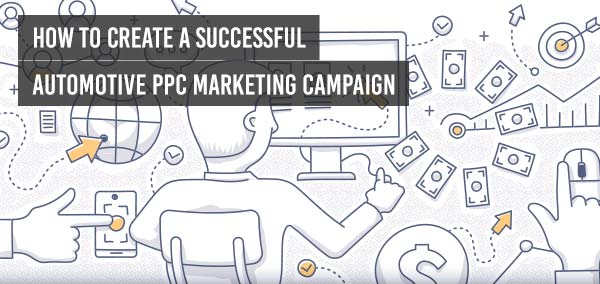
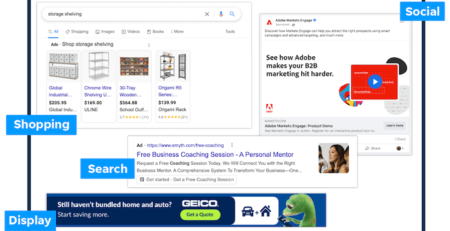
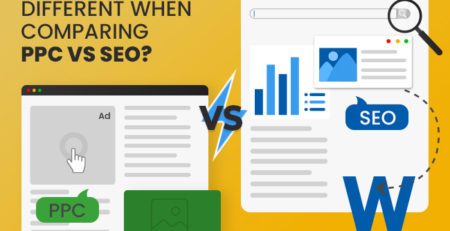
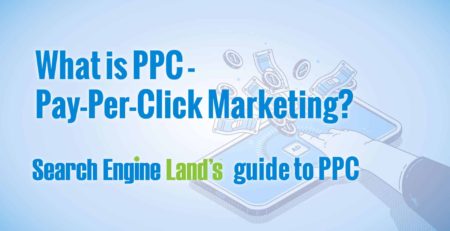
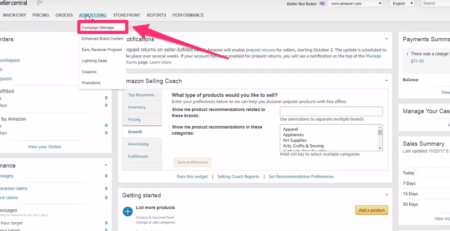
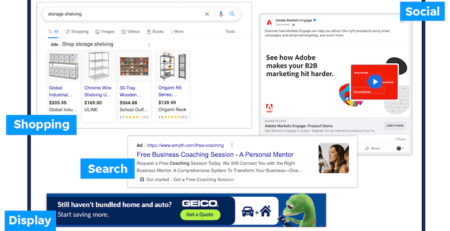
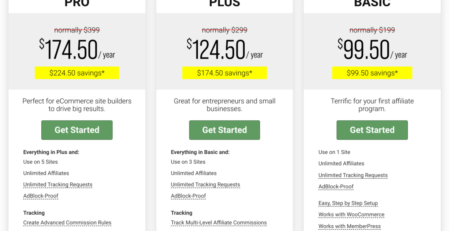
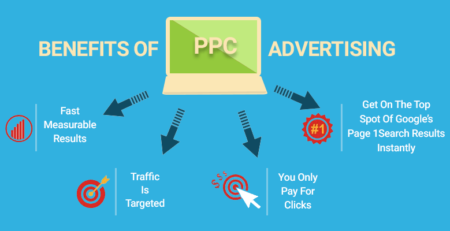
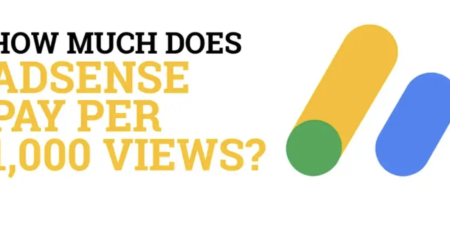
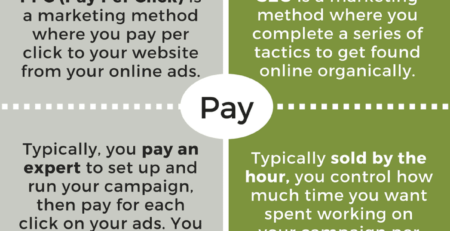
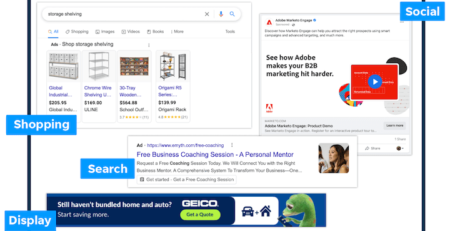
Leave a Reply